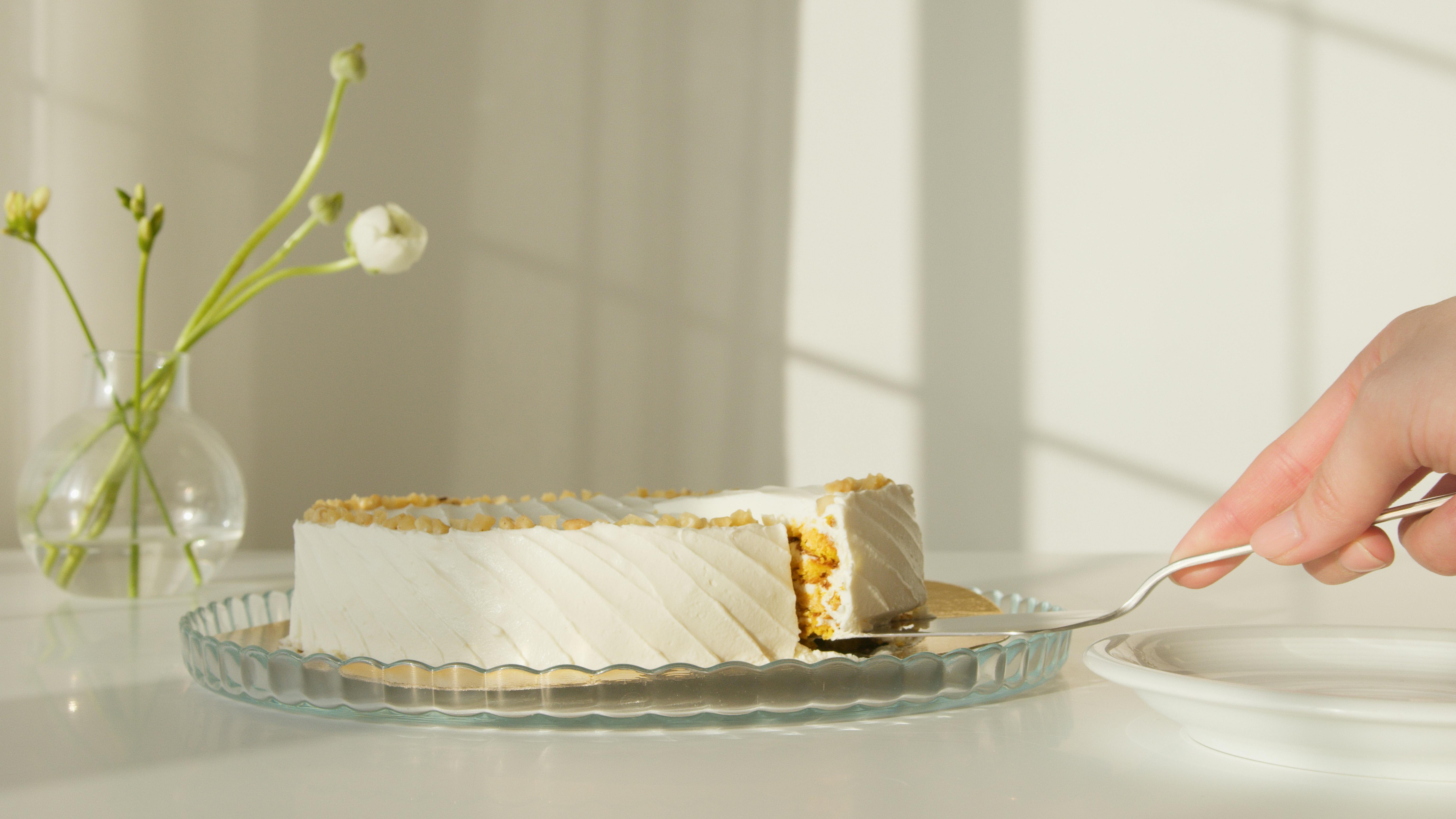Having food stuck in your teeth can be an embarrassing and uncomfortable experience. It can also cause bad breath and other dental health issues. Fortunately, there are some simple steps you can take to help prevent food from getting stuck in your teeth. In this article, we will discuss how to stop food getting stuck in your teeth and how to keep your mouth clean and healthy.To prevent food from getting stuck in your teeth, it is important to practice good dental hygiene habits. Brushing your teeth at least twice a day and flossing once a day can help remove food particles and plaque that may accumulate between your teeth. Additionally, rinsing with an antibacterial mouthwash can help further reduce the risk of food particles becoming trapped in your teeth. Eating crunchy foods that contain fiber such as apples and carrots can also help clean food particles away from your teeth. If you are prone to getting food stuck in your teeth, consider using a dental pick or water flosser to help dislodge any pieces of food that may be stuck between your teeth.
Brush and Floss Regularly
Good oral hygiene is essential for a healthy mouth, teeth and gums. Brushing and flossing regularly can help keep your teeth and gums healthy. Brushing your teeth twice a day with a soft-bristled toothbrush and fluoride toothpaste helps remove plaque – the sticky film of bacteria that clings to teeth. Plaque can cause tooth decay and gum disease if it’s not removed daily.
Flossing helps remove plaque from between the teeth where a toothbrush can’t reach. It’s important to floss at least once a day, ideally before brushing your teeth at night. Ask your dentist or hygienist to show you the proper way to floss so you get the most benefit from this important oral hygiene habit.
Maintaining good oral hygiene habits is an important part of keeping your smile healthy for life. Brush and floss regularly as part of your daily routine to help protect against tooth decay, gum disease, bad breath, and other dental problems.
Using an Interdental Cleaner
Brushing your teeth is only part of the equation when it comes to good oral hygiene. To truly keep your teeth and gums healthy, you should consider using an interdental cleaner. Interdental cleaners are tools used to clean between the teeth and underneath the gum line, which can be difficult to access with a traditional toothbrush. By using an interdental cleaner, you can reach hard-to-reach areas that brushing alone won’t be able to clean.
Interdental cleaners come in a variety of shapes and sizes, including flossers, picks, brushes and sticks. Each type has its own advantages and disadvantages, so it’s important to find one that works best for you. Flossers are pre-threaded floss strands that are easy to use, while picks can help remove food particles from between the teeth without damaging the enamel. Brushes are great for cleaning larger gaps between the teeth, and sticks are great for reaching underneath the gum line.
It’s important to use an interdental cleaner at least once a day for optimal oral hygiene. When using an interdental cleaner, make sure to gently move it back and forth in a sawing motion until all debris has been removed from between the teeth. You should also take care not to press too hard against your gums as this can cause irritation or damage.
In addition to using an interdental cleaner daily, it’s also important to visit your dentist regularly for checkups and cleanings. Your dentist can spot potential problems early on and provide advice on how to keep your mouth healthy in between visits. By following these simple steps, you can keep your mouth healthy and free of cavities or other problems caused by poor oral hygiene habits.
Avoid Hard Foods
It is important to avoid hard foods when you have braces. Eating hard foods can damage your braces and wires, and can also cause tooth decay. Hard items such as ice, popcorn kernels, nuts, and hard candy should all be avoided. These hard items can break off brackets or loosen the wires of your braces. They can also cause the brackets to come off completely, which will require additional trips to the orthodontist for repair.
Soft foods such as mashed potatoes, pasta, yogurt, rice pudding, and oatmeal are all great options for meals when you have braces. Soft fruits such as bananas and applesauce are also good choices. Be sure to cut up any larger pieces of fruit into bite-size pieces to make them easier to eat. Chewing gum should also be avoided since it can cause the brackets to come off easily.
In addition to avoiding hard foods, it is important to practice proper oral hygiene when you have braces. This includes brushing at least twice a day with a fluoride toothpaste and flossing daily. It is also important to visit your orthodontist every six weeks for regular checkups and adjustments as needed. This will help ensure that your braces stay in good condition and that your teeth remain healthy throughout the course of treatment.
Reduce Sugary Foods
Eating too much sugar can have a negative impact on your health. It can lead to weight gain, increase your risk of diabetes, and even increase your risk of certain types of cancer. Therefore, it is important to reduce the amount of sugary foods you eat.
One way to reduce the amount of sugar in your diet is to cut back on processed or packaged foods. These often contain high levels of added sugar or artificial sweeteners that can be difficult to avoid. Eating more whole, unprocessed foods such as fruits, vegetables and whole grains can help you limit your intake of sugar.
Another way to reduce the amount of sugar in your diet is to watch out for hidden sources. Many condiments and sauces contain added sugars that may not be immediately obvious when looking at labels. Be sure to check labels and opt for lower-sugar alternatives when possible.
Finally, look for healthier alternatives when you do indulge in sugary treats. Instead of reaching for candy bars or cookies, opt for fresh fruit or nuts instead. You can also make healthier versions of some desserts by using natural sweeteners like honey or pure maple syrup in place of refined sugars.

Staying Hydrated
Drinking enough water is essential for overall health and well-being. Hydration helps your body to perform its basic functions, such as maintaining temperature, aiding digestion, and eliminating waste. Not getting enough water can lead to dehydration, which can cause a number of unpleasant side effects such as headaches, fatigue, constipation and dry skin. It’s important to stay hydrated throughout the day by drinking plenty of fluids.
Water is the best way to stay hydrated since it has no calories or sugar and is easily absorbed by the body. But other beverages such as milk, juice and sports drinks can also help you stay hydrated. If you are exercising or working in hot conditions then sports drinks may be beneficial as they contain electrolytes which help to replace lost minerals while hydrating your body.
It’s important to drink regularly throughout the day rather than waiting until you feel thirsty. Thirst is a sign that your body is already starting to become dehydrated so it’s best to drink before that point. Aim for 8-10 glasses of fluids per day if you’re an adult or 6-8 if you’re a child.
Certain foods can also help with hydration – fruits and vegetables such as cucumbers, melons, tomatoes and oranges are particularly good sources of water while soups and stews will also contribute towards your daily fluid intake. Eating meals that are high in water content can also help you stay hydrated without having to drink large amounts of liquid throughout the day.
It’s important to stay hydrated for optimal health so make sure you get enough fluids every day!
Should You Chew Gum After Eating?
Chewing gum after meals has long been a popular habit, but is it actually beneficial? While there are some potential benefits to chewing gum after eating, there are also some drawbacks. Overall, the effects of chewing gum after eating are largely inconclusive and more research is needed.
One potential benefit of chewing gum after meals is that it may help reduce feelings of hunger. This could be useful for people trying to lose weight or manage their calorie intake. Chewing gum may also help stimulate saliva production, which can help reduce the risk of cavities by washing away food particles and bacteria.
However, there are also some potential drawbacks to chewing gum after eating. In particular, sugar-free gums often contain artificial sweeteners such as xylitol or sorbitol that can cause gastrointestinal distress in some people. Additionally, the extra saliva production can sometimes lead to an increase in acid reflux symptoms, such as heartburn.
In conclusion, further research is needed to determine the potential benefits and drawbacks of chewing gum after meals. At this point, it appears that the effects are largely inconclusive and the decision to chew gum should be made on an individual basis.
Schedule Professional Cleanings
Keeping your home clean and organized is essential for maintaining a healthy environment. A professional cleaning service can help you keep your home tidy and free of dust and dirt. Scheduling regular cleanings with an experienced cleaner can save you time and energy, as well as help to reduce stress.
Before scheduling a professional cleaning service, it is important to determine the type of cleaning that you need. A basic cleaning may include vacuuming, dusting, mopping floors, and wiping down surfaces. While more thorough cleanings may include deep cleaning carpets, washing windows, polishing furniture, scrubbing bathrooms and kitchens, and more. Your professional cleaner should be aware of any special instructions or preferences for your home and be able to accommodate them.
When scheduling a professional cleaning service, consider how often you need the service. Depending on the size of your home and how many people live in it, you may want to schedule weekly or biweekly cleanings. Most reputable cleaners will provide a free consultation so that they can assess your needs before providing an estimate for services.
Finally, it is important to consider the cost of hiring a professional cleaner. Professional cleaners typically charge by the hour or by the job. If you have special circumstances or need additional services beyond basic cleanings, this will also affect the cost of services. Be sure to ask about any discounts or promotions that may be available as well as any additional fees before signing a contract with a cleaner so that there are no surprises when it comes time to pay the bill!

Conclusion
Preventing food from getting stuck in your teeth is important for maintaining good oral hygiene. Practicing regular brushing and flossing, visiting your dentist regularly, eating healthy and avoiding sticky foods, and using dental picks to remove food are all effective ways to help keep food from becoming lodged in your teeth. By following these steps, you can ensure that your teeth remain healthy and free of food particles.
In addition to these practices, you may also want to consider adding a tongue scraper to your daily routine. Tongue scraping helps remove bacteria and other particles that can cause bad breath or become lodged in the crevices of your teeth. Taking these steps will not only ensure that your teeth remain healthy, but will also help you maintain fresh breath throughout the day.
We hope this article has provided useful tips for how to stop food from getting stuck in your teeth. Remember that prevention is the key when it comes to oral health, so make sure you practice good hygiene habits on a daily basis and visit your dentist regularly.
